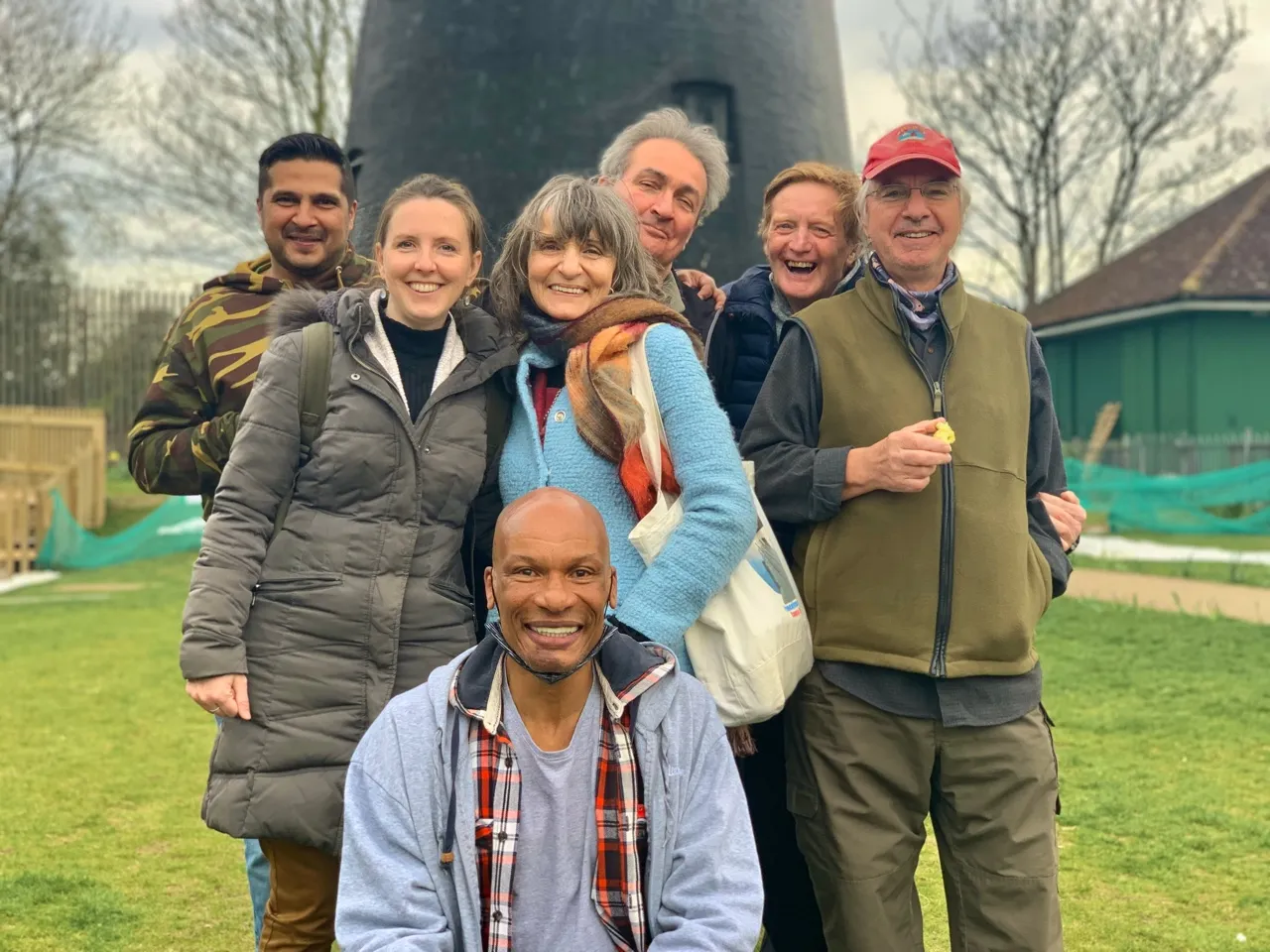
The first night I spent in London someone was murdered on my street. I had just left home, coming from a rural area of France where the worst crime I heard of was onions being stolen from a neighbour's garden. Now I was in a big city, where a man had been stabbed to death just feet away from my home, and it didn’t even make the news.
The local people seemed almost dismissive as they used the words 'gang violence', as if that mattered less, or as though it wouldn't affect ‘normal' people, like us, who aren’t part of a gang.
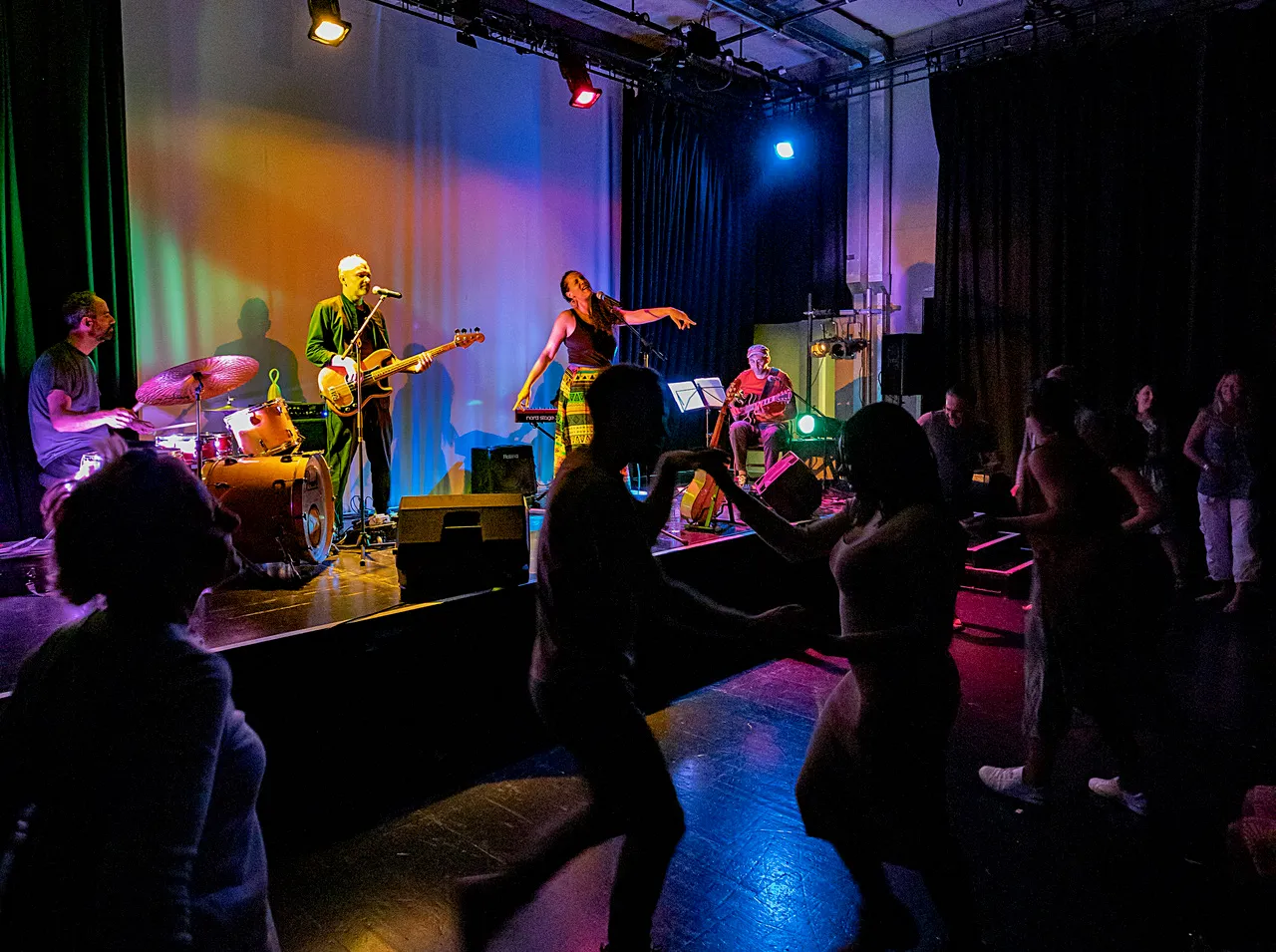
But it did affect me. Every single time I walked home past that spot, in the back of my mind I wondered: Why did this happen? What could make someone join a gang? How could his family, who I saw visit the place with faces wrecked by grief, ever recover from such a trauma? It was such a dramatically different world than the one I grew up in, I could make no sense of it at all.
Strangely enough, 15 years later, I find myself exploring these questions, and more importantly the answers, through the power of documentary storytelling. But first, let me tell you how I arrived at this point.
By a mixture of chance and good luck, within a few months of coming to London I met Roni Redmond, whose creativity immediately sparked with mine, and we hatched a plan to organise peace-themed music events. About the same time, I met Rob Dunford, recently retired from his job at ITV, who was happy to share with me his video-editing knowledge and skills. I had a passion for film-making but no training, equipment, software or know-how, so his help was invaluable.
In what felt like no time at all, we were putting together music events, and filming them to create short edits for YouTube. We called ourselves Celebrate Life but it wasn’t until 2019 that we finally registered as a CIC with Companies House.
Wallee Mc Donnell was a name we heard again and again in those early days, as someone we should meet who could help us. He was already organising outstanding world music concerts at London’s Centre for Peace and Reconciliation, St Ethelburga’s, and mutual friends rightly thought he was just the man to take Celebrate Life to the next level.
Sure enough, once Wallee joined the team, our events scaled up in size and scope, becoming collaborative celebrations of music, poetry, dance, food and film, still with the ethos of peace very much at the centre.
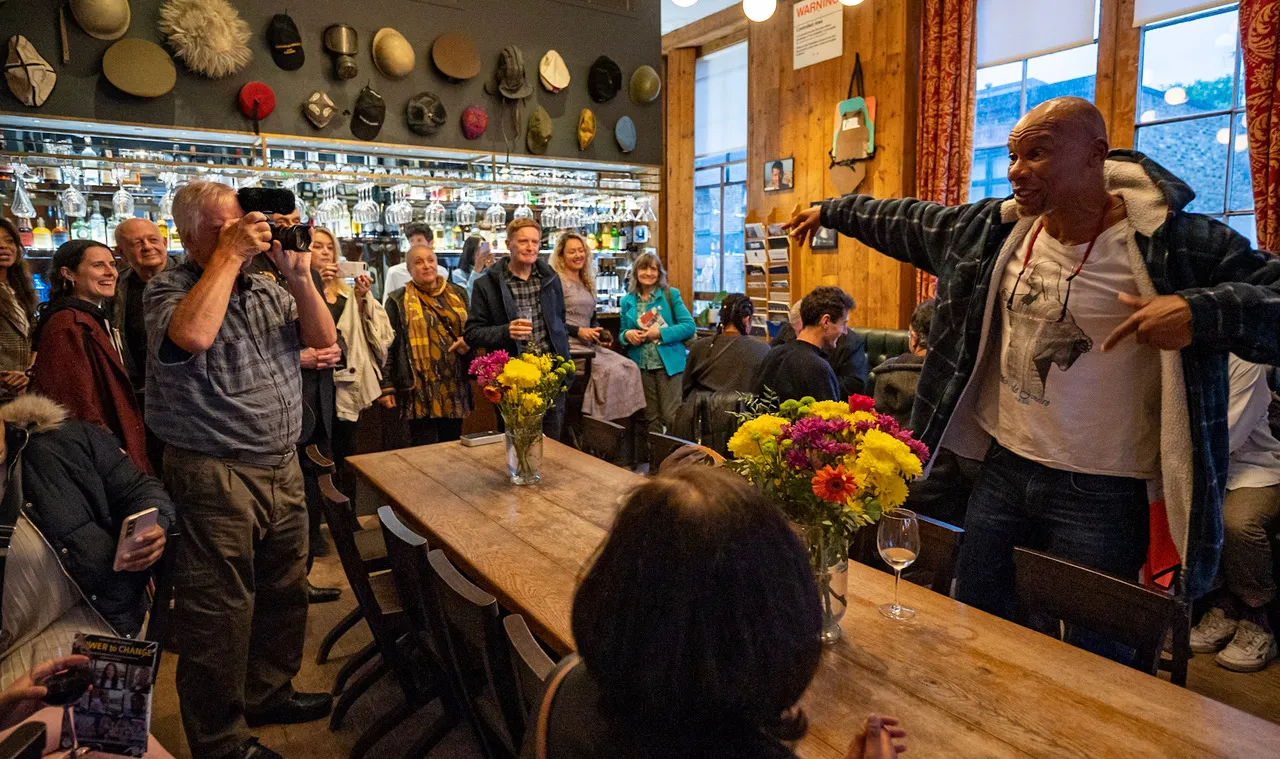
During this time both Roni and Wallee volunteered in Thameside prison running a Peace Education programme that was being trialled for the first time in the UK after great success in the US and South America. It was through this prison work alongside our Celebrate Life events, that we began to meet people whose stories were begging to be told.
This was the birth of Power to Change. There was no formal plan to make a feature-length documentary, there was no storyboard or script, and it was only halfway through filming that we realised we were going to need some kind of budget to finish this thing properly. But I honestly believe that that is part of the power and uniqueness of the film. We had no sponsors breathing down our necks and no agenda that we needed to conform to.
Thankfully, people already knew the good work we were doing, and donated to our GoFundMe, offered venues at a discount, music for the soundtrack, equipment, time, skill, talent, and most importantly their stories.
Each person in Power to Change has been affected by violence, be it as a perpetrator or as a victim, but the film doesn’t stop there. Instead of only focusing on the causes of knife crime and the aftermath of grief, we give voices to people further down the line who have managed to make peace with what happened and reach a place of acceptance and even forgiveness. This makes the film unexpectedly positive. Every screening something transformative happens within the room, I think it’s because what is said is so honest, and so real.
These people faced the kind of trauma we barely dare think about, and yet here they are smiling, in a good place, strong on the inside. They took us on their journey with them and we arrive at the end together with an irrepressible feeling of hope.
The impact of the film over the past year and a half has been overwhelming. We have been invited to screen it at independent cinemas, community centres, prisons, police stations, schools, the Frontline Club, Scotland Yard, and most recently the Houses of Parliament.
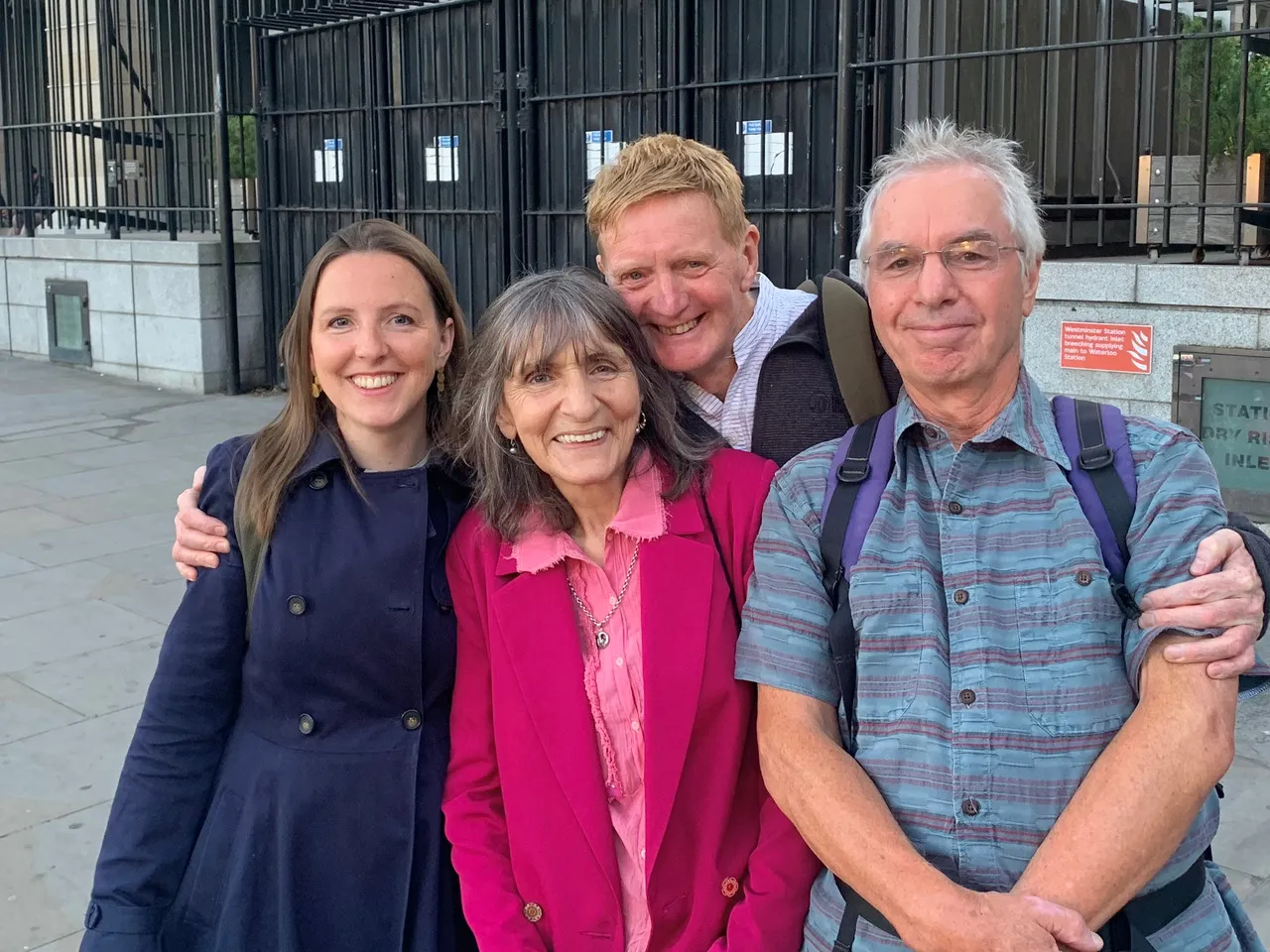
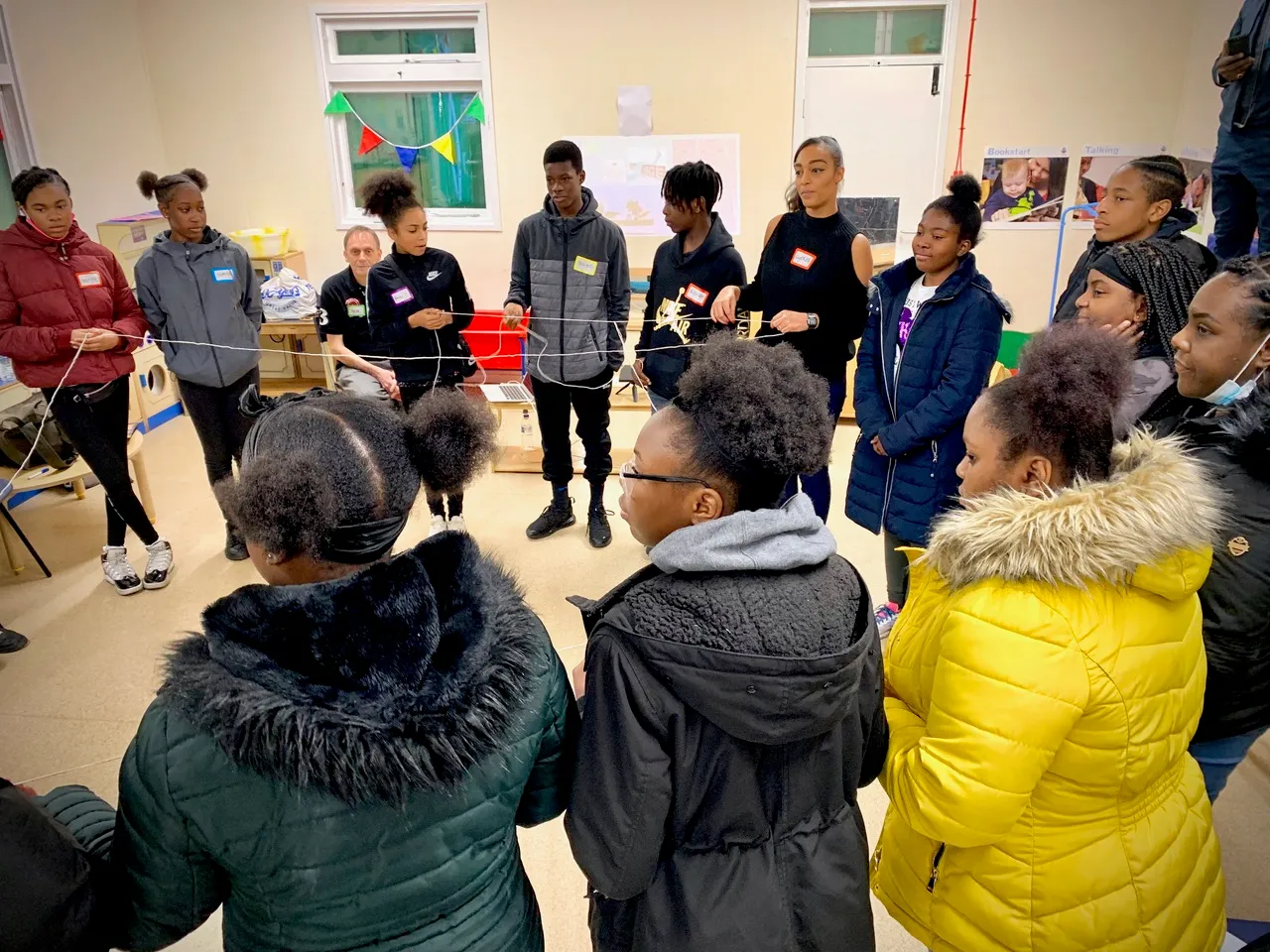
Aside from more than 50 screenings, Celebrate Life continues to organise events and workshops. Roni and Wallee are still heavily involved with the Peace Education Programme (it has expanded to 12 UK prisons) and we have helped adapt a version of this for the young people of London.
Perhaps one of the most pleasant and unexpected side effects of all of this, has been meeting so many people who are doing genuinely fantastic work within their communities - positive forces for good whose impact cannot be quantified. I have learnt that just as one life taken can have such a profound impact on a community, so can one life saved. This has given me great encouragement and hope. There’s still so much to do, but boil things down to an individual level and everything feels possible.
Below are some quotes from people who have viewed the film over the past year.
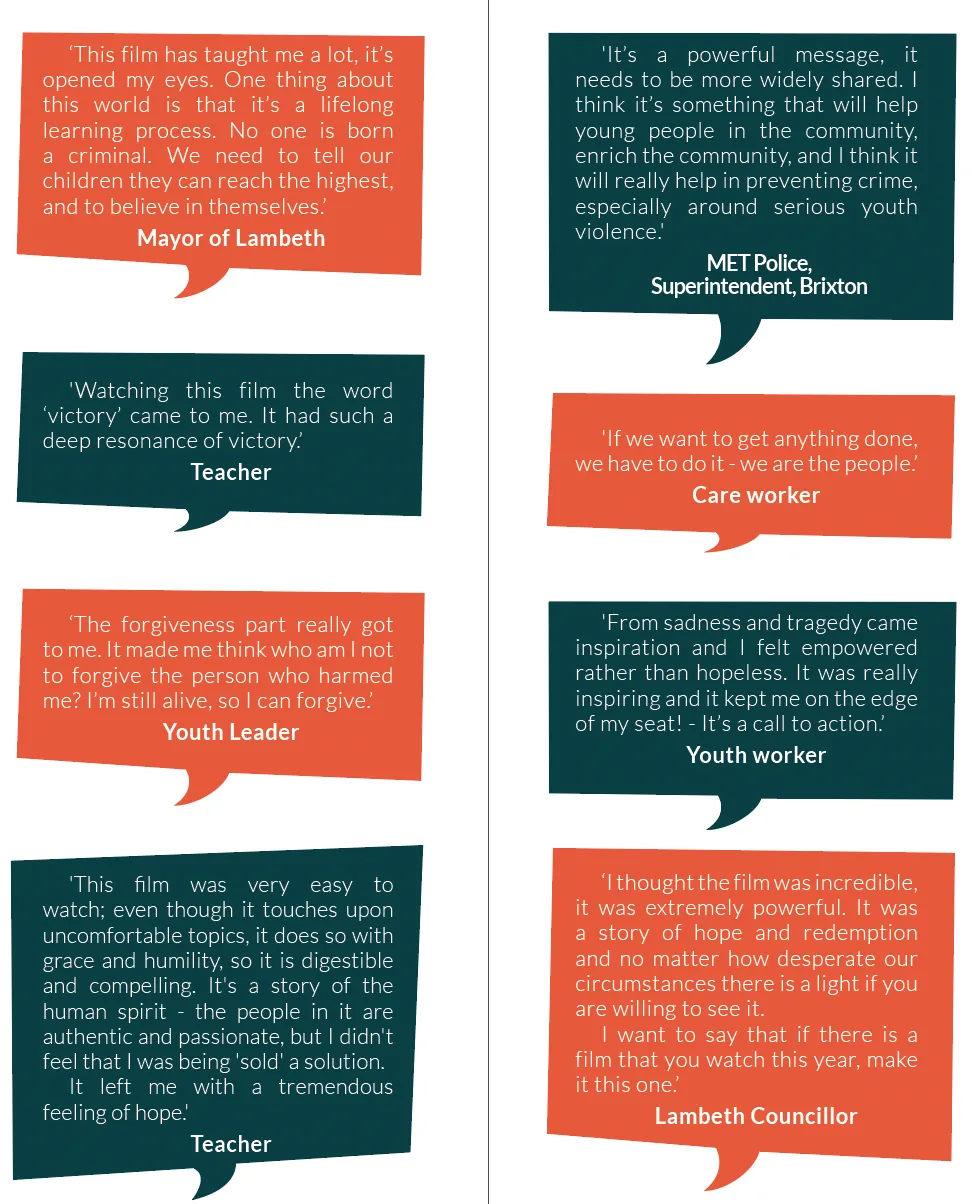
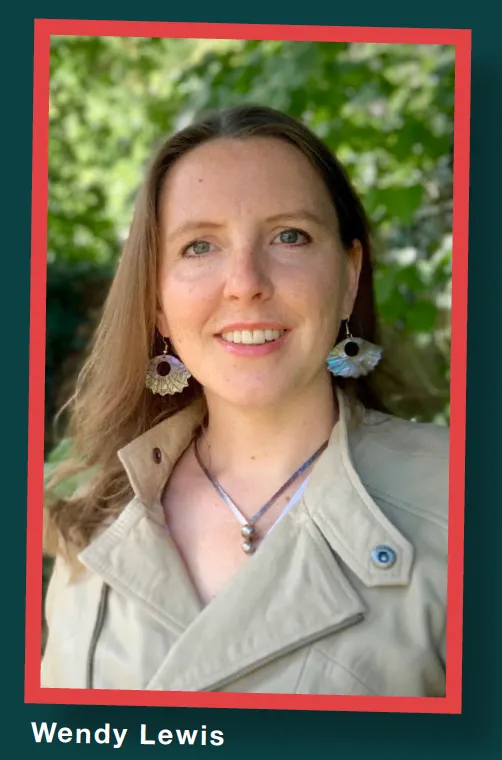
Wendy Lewis
Film-maker and artistic presenter, Celebrate Life Events
www.celebrate-life.co.uk
Artist and film-maker, and documentary story-teller. You will usually see Wendy with camera in hand at the Celebrate Life events, or behind the AV desk lining up the visual content. Wendy is CLE's imaginative presence. She is also a singer/song-writer specialising in North Indian classical vocal and traditional Celtic melodies.